There are many different questions about this, but the problems there are about using v7.28.0, v7.28.+, v7.28.0.0-rc02 But when I sync my project I get this error:
Unable to resolve dependency for ':app@debug/compileClasspath': Could not resolve com.android.support:appcompat-v7:28.0.0.
I've checked Support library setup and followed it's instructions but it didn't help.
This is my module app
buildscript {
repositories {
maven { url 'https://plugins.gradle.org/m2/'}
}
dependencies {
classpath 'gradle.plugin.com.onesignal:onesignal-gradle-plugin:0.12.1'
}
}
apply plugin: 'com.onesignal.androidsdk.onesignal-gradle-plugin'
repositories {
maven { url 'https://maven.google.com' }
}
apply plugin: 'com.android.application'
android {
compileSdkVersion 28
buildToolsVersion '28.0.3'
defaultConfig {
applicationId "com.mobaleghan.nasimnoor"
manifestPlaceholders = [
onesignal_app_id: 'b1ced87b-48d1-4857-a68b-9c287aa4003f',
// Project number pulled from dashboard, local value is ignored.
onesignal_google_project_number: 'REMOTE'
]
minSdkVersion 16
targetSdkVersion 28
versionCode 8
versionName "1.6.3"
vectorDrawables.useSupportLibrary = true
}
buildTypes {
release {
minifyEnabled true
proguardFiles getDefaultProguardFile('proguard-android.txt'),
'proguard-rules.pro'
}
debug {
debuggable true
}
}
lintOptions {
abortOnError false
}
}
dependencies {
implementation 'com.android.support:appcompat-v7:28.0.0'
implementation 'com.android.support:design:28.0.0'
implementation 'com.android.support:preference-v7:28.0.0'
implementation 'com.android.support:recyclerview-v7:28.0.0'
implementation 'com.android.support:support-annotations:27.1.1'
implementation 'com.android.support:support-v4:28.0.0'
implementation 'com.android.support:cardview-v7:28.0.0'
implementation 'com.google.android.apps.dashclock:dashclock-api:2.0.0'
implementation 'com.android.support.constraint:constraint-layout:1.1.0'
implementation "com.android.support:support-core-utils:28.0.0"
implementation 'com.onesignal:OneSignal:3.10.3'
}
and project gradle:
buildscript {
repositories {
google()
jcenter()
}
dependencies {
classpath 'com.android.tools.build:gradle:3.2.1'
// NOTE: Do not place your application dependencies here; they belong
// in the individual module build.gradle files
}
}
allprojects {
repositories {
google()
jcenter()
}
}
The android studio internet connection is fine as I've tested in settings and I don't know where else to look.
I even created a new project in AS 3.2.1 But I get same error. I don't know why this happens every time I update AS!
